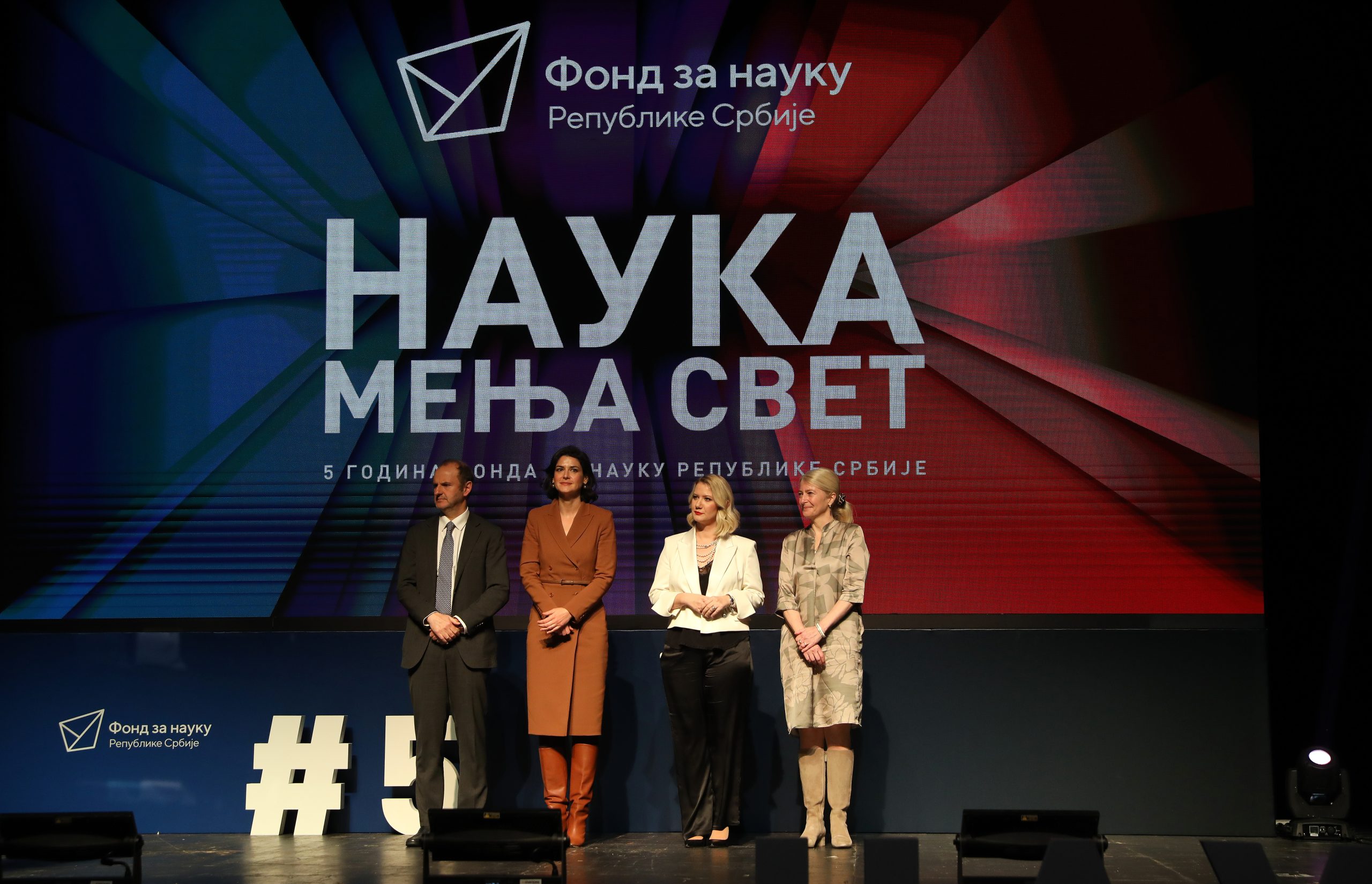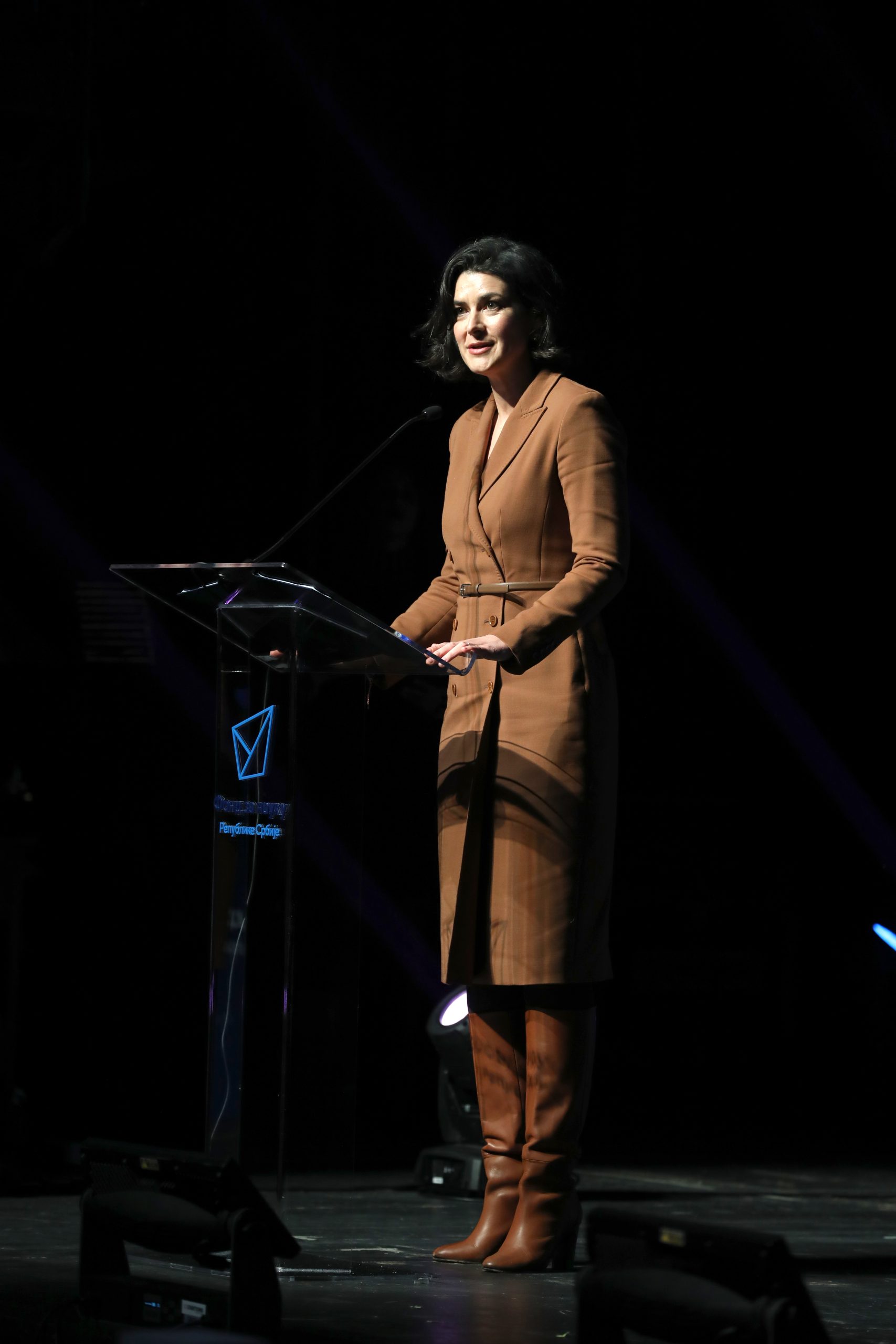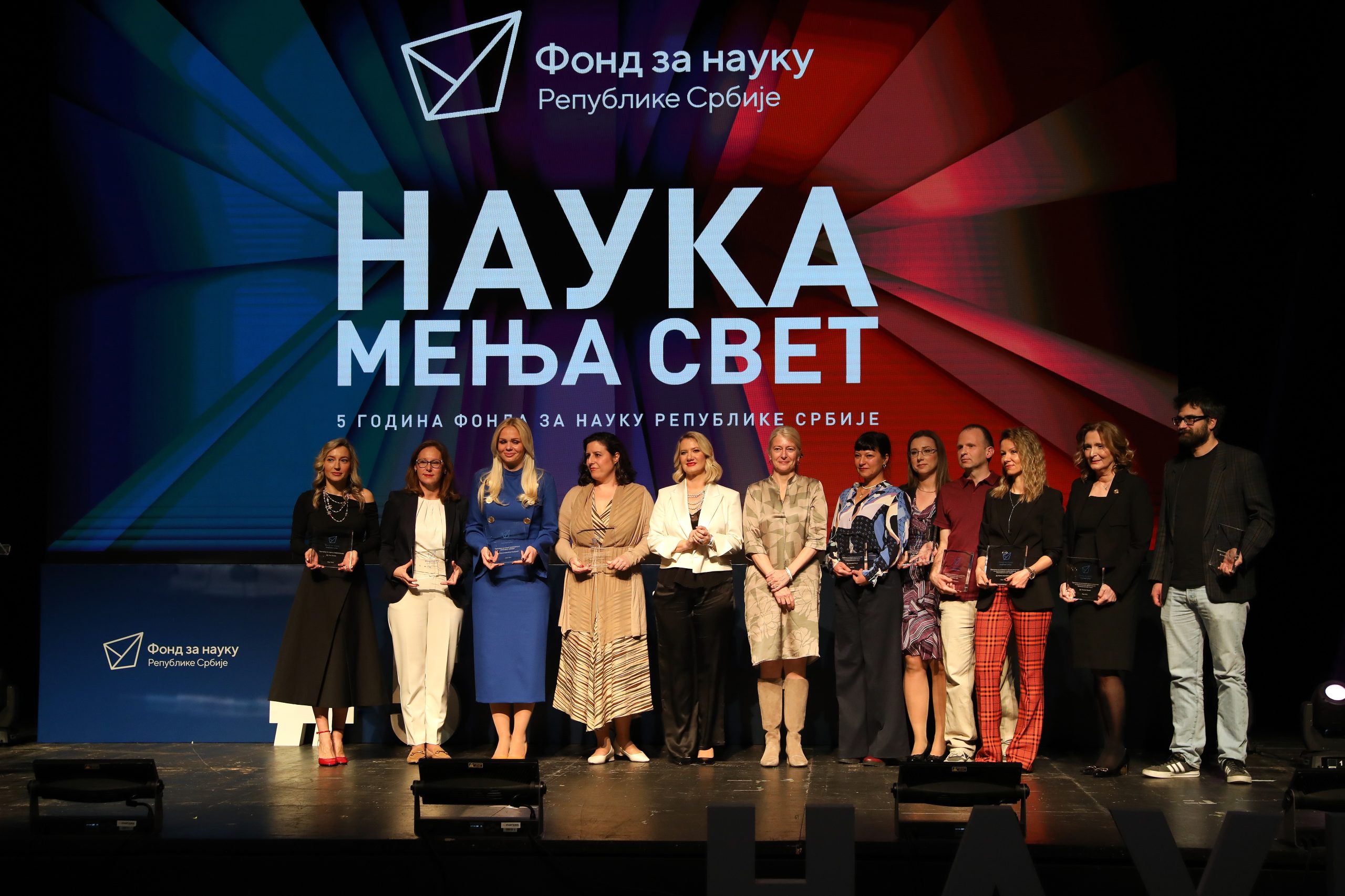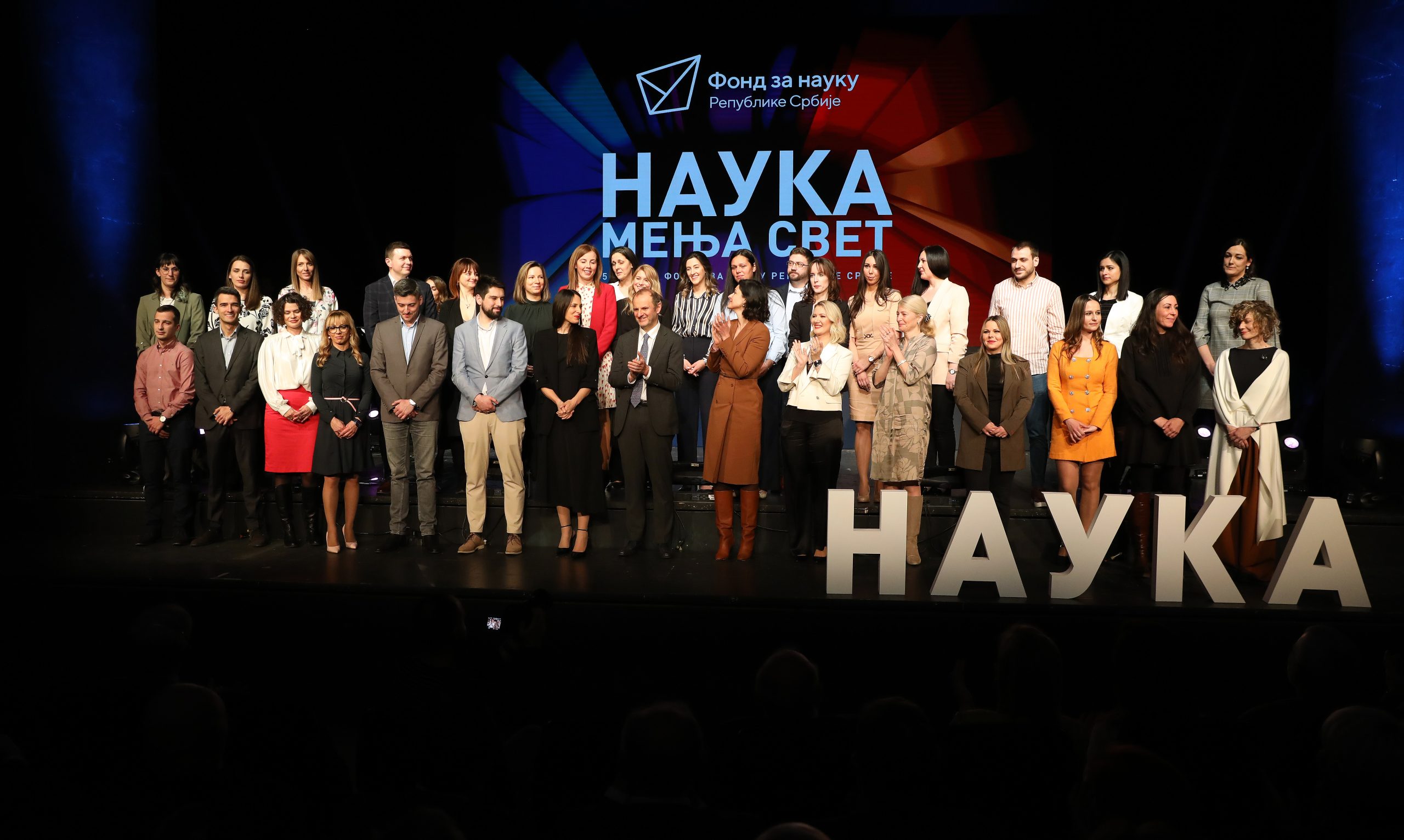The Science Fund of the Republic of Serbia celebrated five years since its establishment with an awards ceremony and awards were presented to researchers for their outstanding contribution to science through the projects of the Science Fund. These prestigious awards from the Science Fund were awarded for the first time. A new generation of young scientists was introduced at the event “Science changes the world”, and they will work on important projects within the PROMIS 2023 program of the Science Fund in the next two years.
During the five years of operation, the Science Fund of the Republic of Serbia opened 11 programs with a total budget of EUR 81.7 million, and 497 projects from all scientific fields were approved for financing. More than 3,000 researchers from Serbia from 145 RDIs in our country are engaged in the projects.
During the ceremony, the Acting Director of the Science Fund of the Republic of Serbia, Dr Milica Đurić-Jovičić, said that she is very proud of the results achieved.
“During these 5 years, we have opened 11 programs and supported projects dealing with important research topics that contribute to the development of science, technology and society as a whole. We have provided funds for the work of researchers, equipment, international cooperation, publications through almost five hundred projects with more than 3,000 researchers engaged in these projects. Also, the Fund is internationally recognised as a stable European institution – we became a member of the Governing Board of the international organisation Science Europe, which gathers funds for financing science in Europe. Behind these results is the great work of the Fund and its employees, the support of the Government of the Republic of Serbia, the World Bank and the European Union, and above all the enormous support of the scientific community in Serbia. For the Fund’s birthday, I wished for an even greater investment in science – investment in new ideas, equipment, infrastructure, knowledge and intelligence. And for our scientists to achieve top results in science and to be a role model for the new generations of young researchers to come,” said Dr Đurić-Jovičić.

The Minister of Science, Technological Development and Innovation, Dr Jelena Begović, emphasised that the Science Fund is of great importance for scientists and the scientific community in Serbia.
“This is a really nice jubilee for science, the scientific community, but also for Serbia. We are celebrating five years since the establishment of the Science Fund in 2019 with the idea of moving to a new way of financing science, which after many decades became competitive, which means that the best ideas, the best teams get funding for their ideas and their research”, said Dr Begović at the ceremony at the Yugoslav Drama Theatre.
The Minister of Science, Technological Development and Innovation pointed out that one of the roles of the Fund is to approach scientists who may not have had experience in leading serious projects and to prepare them for applying for European Union projects, which are very demanding and challenging.
“This was the idea of the state to create the transition period, for people to learn how to manage projects, for people to learn how to compete, how to defend their ideas, in order to be much more competitive as a scientific community in a larger scientific market such as the European Union”, she stated.

The Deputy Head of the Delegation of the European Union in Serbia, Plamena Halacheva, pointed out that it is very important to continue investing in scientific research that contributes to the development of the economy and the quality of life of the citizens of Serbia.
“Investments in scientific research, development and innovation are key to creating a knowledge-based green and digital economy. These investments are not an expense, but an investment in the competitiveness of the economy and the well-being of the citizens of Serbia. The European Union strongly supports science and research in Serbia, as the largest donor that supported the Innovation Fund, together with the World Bank, but also the first to support the Science Fund, which was established five years ago. The EU has provided direct support to the innovation, research and development and start-up ecosystem in Serbia in the amount of EUR 90 million, but this is only part of the EU support, while much more is provided by EU-funded programs such as Horizon 2020, Horizon Europe or COSME, where Serbia achieved excellent results”, said Halacheva.
Country Manager of the World Bank in Serbia, Nicola Pontara, pointed out that the Science Fund has established itself as a key tool for raising the level and quality of research in Serbia, with practical application in the economy and society.
“The competitiveness of the grant awarding process helps researchers to apply for larger European and international grants and strengthen cooperation with researchers abroad and industrial partners. These activities significantly contributed to the improvement of the innovation ecosystem in Serbia”, said Pontara.

The Science Fund awards were awarded to researchers for outstanding contributions to science in eight categories: for excellence in research (awardee: Dr Jakša Vučičević), for excellence in the field of biomedical sciences (awardees: Dr Tatjana Simić and Dr Irena Aranđelović), for distinguished scientific results in natural sciences (awardees: Dr Marko Stalevski and Dr Milica Vujković), for contribution in the field of technical and technological sciences (awardee: Dr Aleksandra Mišan), for excellence in the field of social sciences and humanities (awardee: Dr Emilija Nikolić), for a young manager in the early stages of their career (awardee: Dr Aleksandra Buha Đorđević), for open science (awardee: Dr Aleksandra Janković) and for scientific communication (awardee: Dr Ana Banko).
Managers of 30 projects supported under the PROMIS 2023 program, which is intended to support young researchers and scientists in the early stages of their careers, were also presented at the ceremony. The total budget of the program is EUR 4 million, and 156 young researchers will work on approved projects in the next two years.




